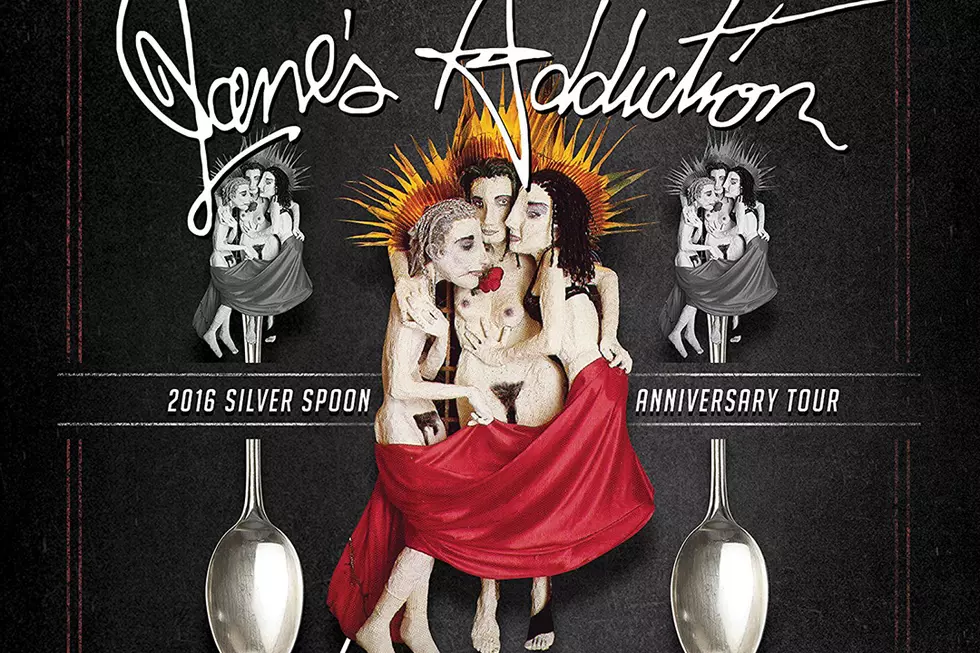How Jane’s Addiction Invented ’90s Alternative Rock With ‘Ritual de lo Habitual’
Jane’s Addiction’s second album, Ritual de lo Habitual, could technically be considered the first '90s "alternative rock" album.
Released on Aug. 21, 1990, Ritual has all of the tell-tale characteristics of what would come to define the alternative sound and aesthetic: a highly eclectic mixture of genre-bending sounds (classic rock, folk, Eastern); a Christ-like lead vocalist (Perry Farrell); Jimi Hendrix-style lead guitar (courtesy of Dave Navarro); and lyrics about youth, sex, homo- and bisexuality, drugs and overall bad behavior (i.e. every parent’s worst nightmare).
From the opening track, the perfectly named single "Stop," it was clear that Jane’s Addiction would be a groundbreaking modern-rock act. It was as if the band were beckoning its audience to strap on the Point Break parachute and wait a second before exiting the eight-miles-high airplane that had been the ‘80s.
You can hear strains of what would spit out on Pearl Jam’s ground-shaking debut almost a year later (to the day), as well as the influence of fellow Californians and future alt-rock elder statesmen the Red Hot Chili Peppers. Jane’s Addiction weren’t just a pack of mongrels stripped from the streets of L.A. like their promo material or onstage antics suggested. These guys were expert musicians and true professionals from the get-go.
The album’s third single, "Been Caught Stealing," is the most memorable, thanks to MTV. The video, an over-the-top grocery-store dance party featuring a cross-dressing shoplifter and numerous other colorful characters, garnered heavy rotation and helped grow the band’s fan base. In those heady days before iTunes, Spotify and Pandora, it was all about radio and MTV. Alongside word of mouth, these were the ways bands reached a mainstream audience.
At this point, the alternative movement hadn't really begun, but even so, Ritual reached No. 19 on the Billboard 200. It's since been certified double platinum in the U.S., and Rolling Stone ranked it No. 453 on the list of the 500 Greatest Albums of All Time.
Ritual never really caught on across the pond, perhaps because the U.K. has always been a much bigger singles market than the U.S., and the trio of decidedly American-sounding singles didn't resonate with the Brits. Of course, just two years later, the U.K. would experience its own budding "alternative" scene with the rise of Britpop. History may prove that Jane’s Addiction’s envelope-pushing helped spawn more than just an American revolution.
Jane's Addiction Albums Ranked From Worst to First
More From Diffuser.fm









